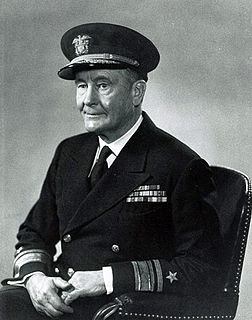A Quote by Andrew Jackson
From the earliest ages of history to the present day there never have been thirteen millions of people associated in one political body who enjoyed so much freedom and happiness as the people of these United States. You have no longer any cause to fear danger from abroad... It is from within, among yourselves - from cupidity, from corruption, from disappointed ambition and inordinate thirst for power.
Quote Topics
Abroad
Ages
Ambition
Among
Any
Associated
Been
Body
Cause
Corruption
Danger
Day
Disappointed
Earliest
Enjoyed
Fear
Freedom
Freedom And Happiness
Happiness
History
Longer
Millions
Millions Of People
Much
Never
People
Political
Power
Present
Present Day
States
Thirst
Thirst For Power
Thirteen
United
United States
Within
Related Quotes
Where there is no danger of overt action there is rarely any interference with freedom. That is why there has so often been amazing freedom of opinion within an aristocratic class which at the same time sanctioned the ruthless suppression of heterodox opinion among the common people. When the Inquisition was operating most effectively against the bourgeois who had lapsed into heresy, the princes of the Church and the nobles enjoyed the freedom of the Renaissance.
In all ages of the world, priests have been enemies to liberty; and it is certain, that this steady conduct of theirs must have been founded on fixed reasons of interest and ambition. Liberty of thinking, and of expressing our thoughts, is always fatal to priestly power, and to those pious frauds, on which it is commonly founded; and, by an infallible connexion, which prevails among all kinds of liberty, this privilege can never be enjoyed, at least has never yet been enjoyed, but in a free government.
Since the date, 1776, is placed on the bottom course of the pyramid [on the Great Seal], and since the number 13 has been so important in the history of the United States and in the symbols of the seal, it is not unreasonable to suppose that the thirteen courses of the pyramid may represent thirteen time-periods of thirteen years each.
Whensoever, therefore, the legislative shall transgress this fundamental rule of society, and either by ambition, fear, folly, or corruption, endeavour to grasp themselves, or put into the hands of any other, an absolute power over the lives, liberties, and estates of the people, by this breach of trust they forfeit the power the people had put into the hands... and it devolves to the people, who have a right to resume their original liberty, and... provide for their own safety and security.
It shouldn't surprise any American to know that Russia uses its money and its intelligence services to spread disinformation, use subterfuge and deception and manipulation, to try to divide political opinion within the United States, within any Western European country, or among NATO countries. That's one of the techniques that Russia has used for decades, during the Cold War and during the Putin era.
But sea power has never led to despotism. The nations that have enjoyed sea power even for a brief period-Athens, Scandinavia, the Netherlands, England, the United States-are those that have preserved freedom for themselves and have given it to others. Of the despotism to which unrestrained military power leads we have plenty of examples from Alexander to Mao.
...should We consent to an order of Cincinnati consisting of all the Officers of the Army & Citizens of Consiquence in the united States; how easy the Transition from a Republican to any other Form of Government, however despotic! & how rediculous to exchange a british Administration, for one that would be equally tyrannical, perhaps much more so? this project may answer the End of Courts that aim at making Us subservient to their political purposes, but can never be consistent with the Dignity or Happiness of the united States.
The power to determine the quantity of money... is too important, too pervasive, to be exercised by a few people, however public-spirited, if there is any feasible alternative. There is no need for such arbitrary power... Any system which gives so much power and so much discretion to a few men, [so] that mistakes - excusable or not - can have such far reaching effects, is a bad system. It is a bad system to believers in freedom just because it gives a few men such power without any effective check by the body politic - this is the key political argument against an independent central bank.
With the unknown, one is confronted with danger, discomfort, and care; the first instinct is to abolish these painful states. First principle: any explanation is better than none. . . . The causal instinct is thus conditional upon, and excited by, the feeling of fear. The "why?" shall, if at all possible, not give the cause for its own sake so much as for a particular kind of cause -- a cause that is comforting, liberating, and relieving.
































